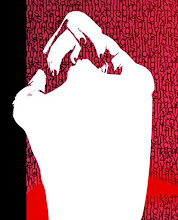
Iceland said it will borrow €4bn (£3.1bn) from the Russian Treasury, after announcing this morning that it would nationalise its second biggest bank, Landsbanki, and give a £400m loan to its largest lender, Kaupthing.
The decision to borrow a large sum of money from another country comes just hours after Prime Minister Geir Haarde told the country that borrowing billions of krona could "make the whole Icelandic society bankrupt".
The threat to Iceland's financial sovereignty is seen as the greatest faced by any country since the credit crisis started 14 months ago.
The Russian ambassador to Iceland, Victor Tatarintsev, informed central bank governor David Oddsson early this morning that Russia would provide Iceland with the loan for three to five years at rates 30 to 50 points above Libor.
However, Russia's deputy finance minister Dmitry Pankin said the country has not yet decided whether to make the loan.
Iceland's Financial Supervisory Authority announced on its website that the nation's second biggest bank, Landsbanki, was now in national hands, dismissing the board of directors and putting the company into receivership.
The country's largest bank, Kaupthing, will be given a £400m loan from the Icelandic Central Bank, which yesterday guaranteed all savings for Icelandic customers.
News of the bank nationalisations sent the Icelandic krona plummeting to a new 35pc low against the euro, but the currency recovered the loss after reports of Russia's loan.
Iceland's FSA has replaced the board with its own executives.
Around 150,000 people in the UK have savings with Landsbanki's Icesave and Kaupthing Edge, the UK retail arm of the Icelandic bank. Icesave said overnight that it had stopped processing requests to remove money and taking on new customers.
Commerce and banking minister Bjorgvin Sigurdsson told Icelandic national radio that the nationalisation was made in cooperation with Landsbanki and the bank would be open and run as normal while the changes were taking place.
"As declared by the government, all domestic deposits are fully guaranteed. Landsbanki's domestic branches, call centres, cash machines (ATMs) and internet operations will be open for business as usual," the FSA said in a statement.
Kaupthing said on its website that the government's £400m loan would "facilitate operations" at the bank and reassured customers that it was committed to the regular workings of the Icelandic financial system.
Iceland's parliament voted to adopt the sweeping new emergency powers to stabilise its struggling financial sector close to midnight last night.
Prime Minister Haarde indicated in a dramatic televised speech that he could not find an affordable loan from abroad that would not be disastrous for Iceland's public coffers. He also warned of "chaos" if Iceland's banks stopped operating, and rushed through the emergency measures.
Mr Haarde added: "A lot of the banks' business is in Britain, so it is likely that Britain might well be affected."
(ref: www.telegraph.co.uk)
P.S: WTF is happening???....Dammit! I was thinking-of buy Iceland myself. Time to really start shopping in my opinion. And no, I haven't got a cent, but massive credit is about to be unleashed...lol. Whats in Iceland anyways other than polar bears, killer whales and seals?






